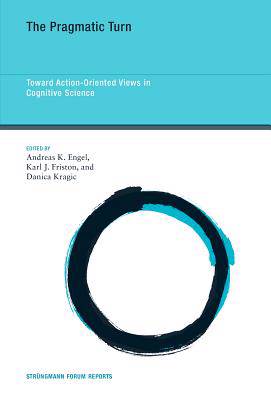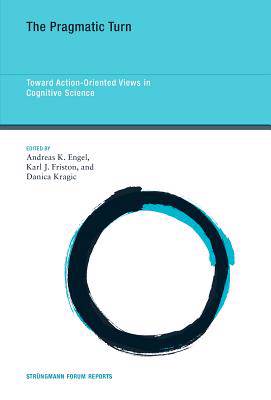
- Retrait gratuit dans votre magasin Club
- 7.000.000 titres dans notre catalogue
- Payer en toute sécurité
- Toujours un magasin près de chez vous
- Retrait gratuit dans votre magasin Club
- 7.000.000 titres dans notre catalogue
- Payer en toute sécurité
- Toujours un magasin près de chez vous
The Pragmatic Turn
Toward Action-Oriented Views in Cognitive Science
Description
Cognitive science is experiencing a pragmatic turn away from the traditional representation-centered framework toward a view that focuses on understanding cognition as "enactive." This enactive view holds that cognition does not produce models of the world but rather subserves action as it is grounded in sensorimotor skills. In this volume, experts from cognitive science, neuroscience, psychology, robotics, and philosophy of mind assess the foundations and implications of a novel action-oriented view of cognition.
Their contributions and supporting experimental evidence show that an enactive approach to cognitive science enables strong conceptual advances, and the chapters explore key concepts for this new model of cognition. The contributors discuss the implications of an enactive approach for cognitive development; action-oriented models of cognitive processing; action-oriented understandings of consciousness and experience; and the accompanying paradigm shifts in the fields of philosophy, brain science, robotics, and psychology.
Contributors
Moshe Bar, Lawrence W. Barsalov, Olaf Blanke, Jeannette Bohg, Martin V. Butz, Peter F. Dominey, Andreas K. Engel, Judith M. Ford, Karl J. Friston, Chris D. Frith, Shaun Gallagher, Antonia Hamilton, Tobias Heed, Cecilia Heyes, Elisabeth Hill, Matej Hoffmann, Jakob Hohwy, Bernhard Hommel, Atsushi Iriki, Pierre Jacob, Henrik Jörntell, Jürgen Jost, James Kilner, Günther Knoblich, Peter König, Danica Kragic, Miriam Kyselo, Alexander Maye, Marek McGann, Richard Menary, Thomas Metzinger, Ezequiel Morsella, Saskia Nagel, Kevin J. O'Regan, Pierre-Yves Oudeyer, Giovanni Pezzulo, Tony J. Prescott, Wolfgang Prinz, Friedemann Pulvermüller, Robert Rupert, Marti Sanchez-Fibla, Andrew Schwartz, Anil K. Seth, Vicky Southgate, Antonella Tramacere, John K. Tsotsos, Paul F. M. J. Verschure, Gabriella Vigliocco, Gottfried Vosgerau
Spécifications
Parties prenantes
- Editeur:
Contenu
- Nombre de pages :
- 432
- Langue:
- Anglais
- Collection :
- Tome:
- n° 18
Caractéristiques
- EAN:
- 9780262034326
- Date de parution :
- 27-05-16
- Format:
- Livre relié
- Format numérique:
- Genaaid
- Dimensions :
- 160 mm x 231 mm
- Poids :
- 907 g






